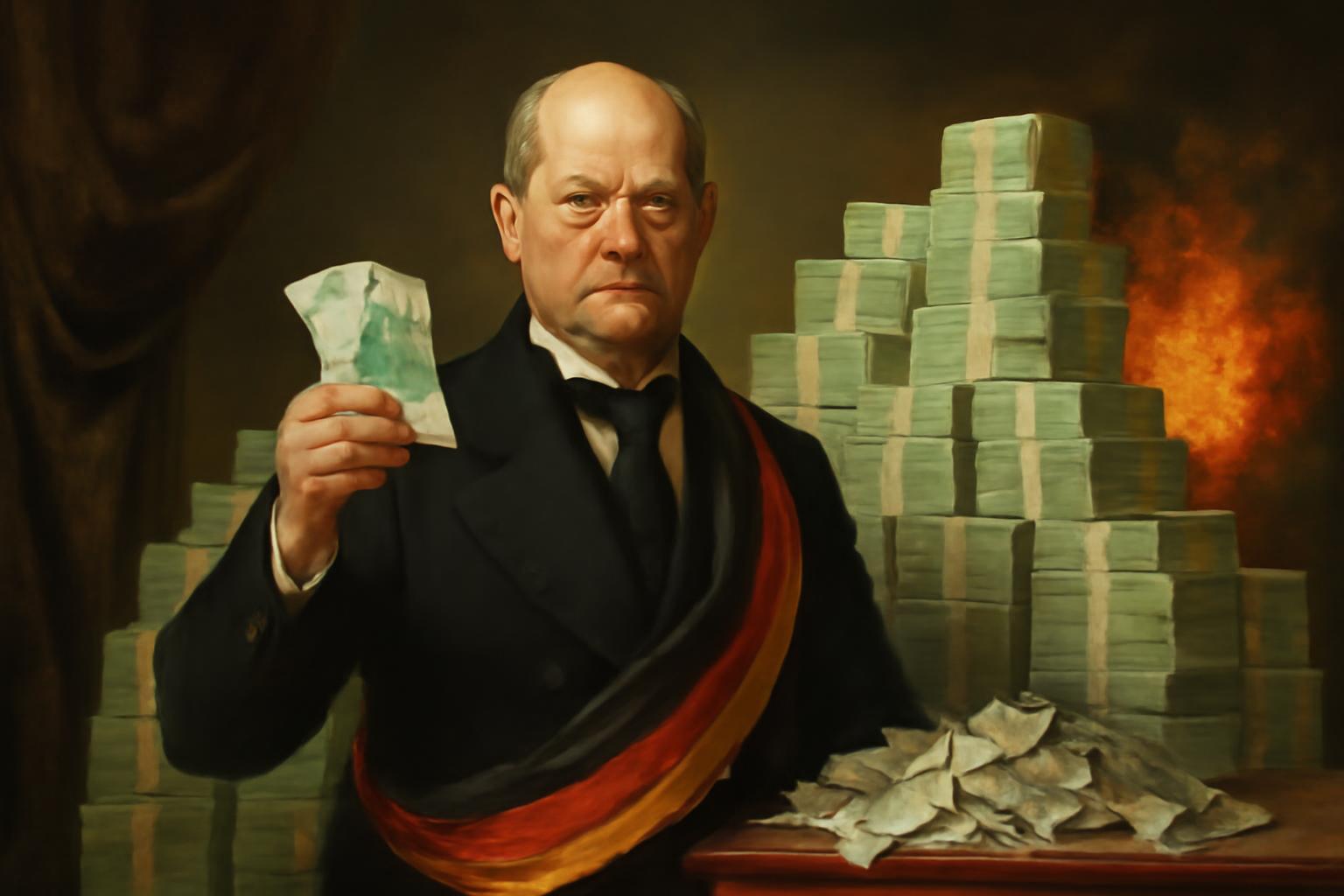What a spectacle! Germany’s Finance Minister, in a fit of what can only be described as performative audacity, has laid out a federal budget that appears to confuse ambition with recklessness. €520.5 billion in spending, €174.3 billion in new debt—oh, how the numbers soar on the wings of bureaucratic fantasy! One almost admires the Minister’s conviction, if such financial pyrotechnics didn’t reek of the same wishful thinking that has so often consigned lesser men to bankruptcy and ruin.
It is, perhaps, predictable that the ever-self-congratulatory coalition lauds this as a trailblazing “milestone.” Undoubtedly, to those accustomed to measuring success by the sheer volume of money thrown at a problem, this must seem like a golden age. But for those of us acquainted with genuine wealth—and by that I mean not only money, but also discernment, restraint, and an allergy to the vulgarity of waste—this is nothing more than fiscal delinquency masquerading as progressivism.
What’s truly galling is this persistent fantasy that endless public largesse will, by some divine intervention, metamorphose into robust growth and prosperity. The poor, of course, are told to celebrate the “fairness” of this largesse, little realizing that fairness financed by debt is a form of generational theft. Such naiveté is, I suppose, endemic among those raised to see government handouts as manna from heaven, rather than a bill to be paid—with interest—by someone else, inevitably the prudent, the successful, the high-born.
Naturally, I view the lavish increases to the Ministry of Labor, gushing funds into pensions, with deep skepticism. In my world, one earns comfort, one does not inherit entitlement by virtue of mere existence or mediocrity. One is also led to believe the Defense Ministry’s windfall is essential to “meet NATO quotas.” Amusing, if not outright tragic, that a people so averse to military matters for decades now suddenly fancies itself a gung-ho power. Rearmament budgets tend to be a favorite distraction for governments wishing to avoid the uncomfortable business of actual reform or innovation.
The opposition is, for once, not entirely wrong in pointing out the lunacy of betting so much on improbable economic growth. In the rarefied world I inhabit, one does not build palaces upon sand and simply hope the tide will not come in. The swelling debt and the preposterous interest burden—€244 billion, for what? No new grand schools, no architectural marvels of the public kind, neither opera houses nor true investments in infrastructure worthy of admiration. Just a mindless splurge that will do nothing but inflate construction prices. Imagine: commoners believing they are investing, when in fact they are merely bidding against themselves.
The Green complaint against special funds is sweetly naive—they seem to believe that governmental legerdemain is a substitute for actual wealth creation. Of course, they would prefer more spending on climate doom-mongering, as though the planet cares about Berlin’s virtue signaling. The Left, too, are enraged at military spending; perhaps they believe that peace and security are conjured up out of goodwill and activism. How provincial.
In the end, what ails Germany is not a lack of money, but a surfeit of wishful thinking tied to the plebeian delusion that one can have everything at once: prosperity, security, and endless comfort without any of the pain, discipline, or hard choices known to those at the summit of society. It is all so terribly predictable. If only these parliamentarians could be entrusted with the management of real fortunes—if only for a day—so they might at last appreciate the meaning of stewardship, and the peril of treating other people’s money as though it were conjured from nothing.
One can only hope that, amidst the parliamentary wrangling and populist theatrics to come, some fragment of aristocratic restraint and wisdom will at last shine through. Though one suspects, given recent history, that such sophistication may be too much to expect from the rabble.
